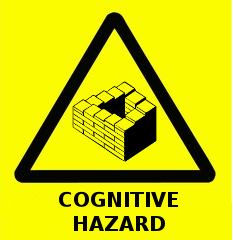As if the Massachusetts political process wasn't enough of a circus, the Massachusetts House of Representatives decided to ramp up the drama by introducing a bill that would repeal the so-called "gift ban" (previously covered HERE) with the legislative session rapidly coming to an end.
What Happened?
Despite positive media coverage of the repeal and direct appeals from healthcare providers, the bill seems to have quickly been jettisoned when things heated up in the final 48 hours of the legislative session. So the the ban remains intact. Why the conference committee canned the amendment is unknown beyond the State House walls, but that secret is unlikely to remain hidden for too long -- stay tuned for future posts on that topic.
Why Now?
Some speculated that the decision to repeal the ban was simply good legislators coming to their senses and realizing the effort was ill-conceived. Others speculated it was the good work of the Massachusetts Restaurant Association, who have been actively touting the unintended consequences of the ban on their business. The other most prevalent argument is that the Association set the stage, but it was the Senate's refusal to play nice with the House on other legislation (gambling legislation, believe it or not) that prompted what could be interpreted as an affront to the Senate President. She was the sponsor of the "gift ban", so there seems to be some logic in the latter. In all likelihood it was a combination of all of the above.
Who Were the Players?Regardless of what prompted the bill and despite a short window to mobilize, the bill generated a ground swell of support from the medical community. A steady stream of communications were emerging from healthcare practitioners from around the state and the medical blogs were buzzing as Massachusetts physicians shared their perspectives from the front lines. In two interesting posts on MedPage Today, physicians tackled the negative impacts of the ban on opportunities to engage with colleagues while learning a little something new (HERE) and analyzed who were the winners and the losers from the ban (Spoil Alert: Answers - Insurers and patients, respectively) (HERE). The posts obviously struck some chords, check out the comments and see for yourself!
Along with members of the health care community that value being able to make decisions for themselves (i.e., who they interact with, what information they access, etc.), restaurants and convention centers supported the repeal since it directly impacted their businesses. However, what was lesser known was who was pushing to keep the ban in place. Luckily the WSJ Health Blog cleared that up nicely for us HERE. Apparently, Health Care for All, took some time to celebrate their victory on their website. (Note: The pictured billboard is owned by the International Brotherhood of Electrical Workers 103. Before launching support for this effort, they ran the "Stop Biotech Looting" campaign HERE.)

And Who Are They?
Health Care for All, is a very active lobbying organization that works closely with Community Catalyst, who have a strong connection to another organization that could be considered 'ground zero' of the conflict of interest (COI) movement: Pew Prescription Project. Prescription Project has been actively working to sever physician-industry interactions by promoting highly restrictive COI policies at academic medical centers as well as within state legislatures. They co-authored the Brennan et al. (JAMA 2006, subscription required) that laid the foundation for such policies. Interestingly, none of them listed their affiliation with Prescription Project or other activist organizations. Hhhmmm, fighting for disclosure for some but not all, apparently. Although, one blog post can't fully depict the ties between these organizations, hopefully over time you'll notice that it is the same actors making the same arguments with the same highly limited evidence to promote policies that restrict interactions.
What is Their Goal?
If you can answer that, post a comment!






